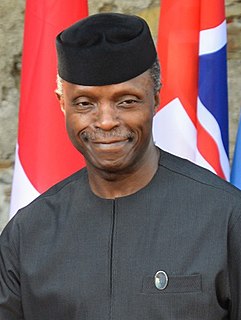A Quote by Rutherford B. Hayes
The man of large and conspicuous public service in civil life must be content without the Presidency. Still more, the availability of a popular man in a doubtful State will secure him the prize in a close contest against the first statesman of the country whose State is safe.
Related Quotes
[T]he mass-man sees in the State an anonymous power, and feeling himself, like it, anonymous, he believes that the State is something of his own. Suppose that in the public life of a country some difficulty, conflict, or problem presents itself, the mass-man will tend to demand that the State intervene immediately and undertake a solution directly with its immense and unassailable resources. This is the gravest danger that to-day threatens civilisation: State intervention; the absorption of all spontaneous social effort by the State.
Louis XIV was very frank and sincere when he said: I am the State. The modern statist is modest. He says: I am the servant of the State; but, he implies, the State is God. You could revolt against a Bourbon king, and the French did it. This was, of course, a struggle of man against man. But you cannot revolt against the god State and against his humble handy man, the bureaucrat.
Without an acquaintance with chemistry, the statesman must remain a stranger to the true vital interests of the state, to the means of its organic development and improvement; ... The highest economic or material interests of a country, the increased and more profitable production of food for man and animals, ... are most closely linked with the advancement and diffusion of the natural sciences, especially of chemistry.
If the state cannot be entirely composed of good men, and yet each citizen is expected to do his own business well, and must therefore have virtue, still inasmuch as all the citizens cannot be alike, the virtue of the citizen and of the good man cannot coincide. All must have the virtue of the good citizen - thus, and thus only, can the state be perfect; but they will not have the virtue of a good man, unless we assume that in the good state all the citizens must be good.
In fact all the Islamists, that is the reformists not the Salafis, now they all say that they want a civil state, a civil state with Islamic reference points. They are not talking about an Islamic state, or sharia in the way this was once understood in the fight against the colonisers, or just afterwards in the 70's, 80's and 90's.
Louisville, KY - Barack Obama lost Kentucky in 2012 by 23 points, yet the state remains closely divided about re-electing the man whose parliamentary skills uniquely qualify him to restrain Obama's executive overreach. So, Kentucky's Senate contest is a constitutional moment that will determine whether the separation of powers will be reasserted by a Congress revitalized by restoration of the Senate's dignity.
If the church says you are not allowed to steal, and we will ostracize you in our midst if you did, if what a man has does not measure up to what he has, if we found that a man has more money than he should have, if a man is earning a salary of a civil servant or a public servant and he has houses everywhere, we have to hold him to account.
Every man who truly loves a woman, and every woman who truly loves a man, hopes and dreams that their companionship will last forever. But marriage is a covenant sealed by authority. If that authority is of the state alone, it will endure only while the state has jurisdiction, and that jurisdiction ends with death. But add to the authority of the state the power of the endowment given by Him who overcame death, and that companionship will endure beyond life if the parties to the marriage live worthy of the promise.
A REAL man, the kind of man a woman wants to give her life to, is one who will respect her dignity, who will honor her like the valuable treasure she is. A REAL man will not attempt to rip her precious pearl from it's protective shell, or persuade her with charm to give away her treasure prematurely, but he will wait patiently until she willingly gives him the prize of her heart. A REAL man will cherish and care for that prize forever.


































